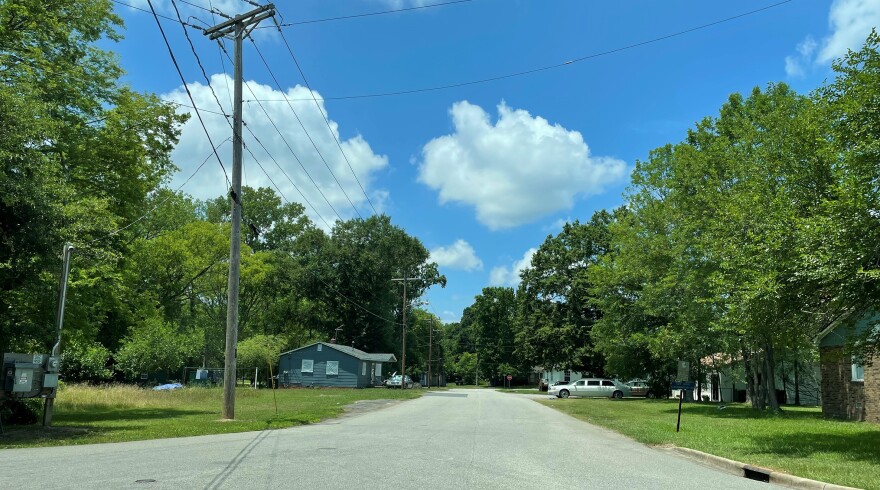Rock Hill’s Southside neighborhood is an anomaly. It’s a district in which African-Americans hold a certain degree of generational property wealth.
It’s not rich area. The homes are older – built more than a half-century ago – and were never high-end homes. But families own them outright; pass them down to children, to provide a measure of security that eludes a disproportionate share of Black Americans, particularly in the South.
And that’s starting to disappear.
With a large share of residents above or nearing retirement age, the generation of owners in neighborhoods near Albright Road or Crawford Road does not have family looking to take over the properties in the coming years.
“My block is all senior citizens for the most part,” says Dr. Norma Gray, a Southside resident and social justice advocate. “That's what you have in this area. And the Millennials and Gen X-ers [are] not vested. We have to get the message to the children and grandchildren of the people that own these homes, because they don't have a knowledge of what's happening.”
What’s happening is that those children and grandchildren are making their own lives elsewhere, Dr. Gray says; and that’s creating a market ripe for investors looking to either buy and flip homes, or buy, renovate, and rent out properties. Either way, Dr. Gray says, the future of Rock Hill’s established Black Southside neighborhoods could soon look a lot different than it has for decades.
A push to buy up homes in this end of town – and, to be fair, everywhere in the rocketship market that is Rock Hill these days – is coming from just outside York County. If you live in Rock Hill, or a nearby town, you’ve likely received the occasional postcard in your mailbox from a Charlotte-based company with a greeting like: ‘We’re interested in buying your house ….”
Some of these offers, says Dawn Johnson, chair of the Rock Hill Economic Development Corporation, are double what a house might be worth. And they offer a few tempting perks: cash buys, as-is, with no worries about inspections, repairs, or even clean-up.
But Dr. Gray’s advice to neighbors who ask her opinion is unambiguous – consider what your house (that is already owned outright) might be worth in another decade to your family.
That is, of course, if your family wants the place.
Dr. Gray says the mailings and, eventually, calls and text messages about selling ramped up once the Carolina Panthers announced plans to move the team’s front office to a grand development across town. But now that the Panthers are not coming, the flood of mailed cards and texted solicitations hasn’t slowed much.
And while she is not considering selling, Dr. Gray says she talks to Southside residents who are slowly being swayed to take the money being offered for their homes – not because of shady investors, but because, well, what else are they going to do with the place if their families don’t want it?
Dawn Johnson agrees that it’s better to think twice before selling, for a really simple reason – if you own your house outright, no offer would be enough to let you buy another (read: better) house outright in the current Rock Hill market. Owners would go from paying only property taxes to paying property taxes and mortgages – provided they could qualify for good ones.
Down the street from Dr. Gray, Ethel Josephine Jordan, a retired Rock Hill educator, sits on her front porch and counts the number of houses in which she knows the residents. The number’s smaller than it used to be, she says. She sees a lot of new faces and doesn’t know whether they’re buying or renting.
She doesn’t particularly care, but she does notice.
She is, however, as sure as Dr. Gray that she’s not moving. She’s spoken to potential homebuyers who’ve made overtures towards her home. Her answer is the same every time – and it’s the very question both Norma Gray and Dawn Johnson want Southside residents to consider before they decide to sell their homes:
"Where would I go?"
This story is part of an ongoing look at the changing nature of Rock Hill’s South Side. Follow the story here on SouthCarolinaPublicRadio.org.



